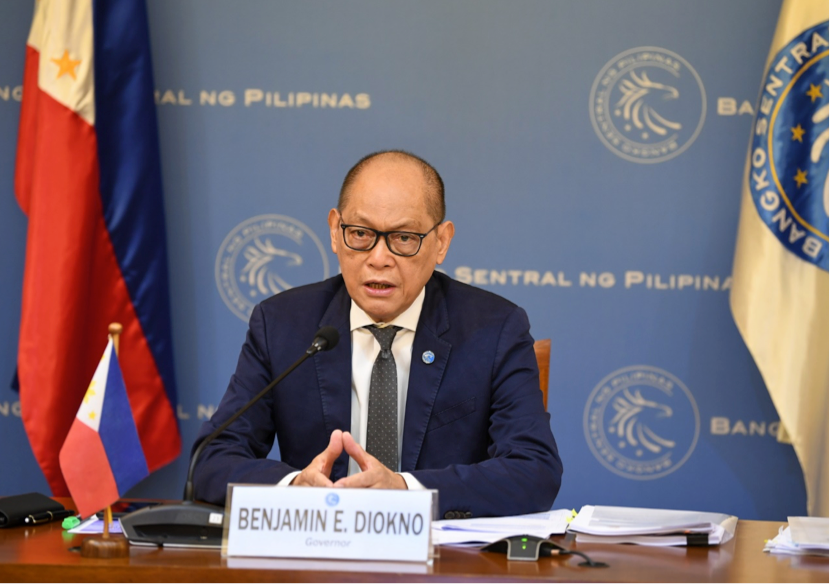Business and Economy
PH economy still needs continued monetary policy boost: Diokno

MANILA – The domestic economy still needs sustained monetary policy support as inflation remains elevated and growth is still fragile due to the impact of the pandemic and other international factors.
Bangko Sentral ng Pilipinas (BSP) Governor Benjamin Diokno, in his speech during the 2021 third quarter inflation report briefing streamed through the central bank’s Facebook page on Thursday, said the central bank kept its accommodative monetary policy settings last quarter “mainly to sustain the economy’s nascent recovery.”
He said inflation outlook continues to lean on the upside because of the rising international commodity prices, the impact of weather disturbances, and prolonged recovery from the African swine fever outbreak.
“Against this backdrop, continued monetary policy support remains crucial in supporting private demand and encouraging banks to lend and thereby allow the economic recovery to gain more traction,” he said.
Diokno also cited the need for “further traction from non-monetary government interventions to directly address supply-side inflation pressure.”
This factor, he said provides “flexibility to monetary authorities in preserving policy support for the economy.”
“Looking ahead, the continued decline in Covid-19 (coronavirus disease 2019) infection cases owing to the speedier vaccine rollout and more effective granular lockdown will help underpin the economy’s gradual reopening. Equally important, continued fiscal support, widespread access to vaccines, and appropriate containment strategies will remain critical in boosting productivity and restoring the economy’s overall growth trajectory,” he said.
Relatively, Diokno said central banks in advance economies have started re-assessing their respective monetary policy settings vis-à-vis the impact of upticks in global commodity prices due to improvement in demand as well as the supply bottlenecks.
“The BSP, however, is confident that the Philippines is well-placed to recover over with a possible tightening of global financial conditions,” he said, citing that the central bank still has “a full range of policy tools at our disposal.”
These policy tools include the capacity to join the foreign exchange market to address extreme volatility and the macroprudential measures aimed to deal with “specific imbalances and prevent the build-up of risks in the financial system.”
He said the country also continues to enjoy large foreign exchange reserves, which amounts to around USD107.16 billion as of end-September 2021, because of resilient inflows like remittances from Overseas Filipino Workers (OFWs) and the business process outsourcing (BPO) sector, among others.
“In sum, the policy actions of the BSP during the third quarter are consistent with its commitment to maintaining macroeconomic stability. We will continue our data-driven approach in achieving BSP’s primary mandate of promoting price and financial stability conducive to a balanced and sustainable growth of the economy,” he added.





















